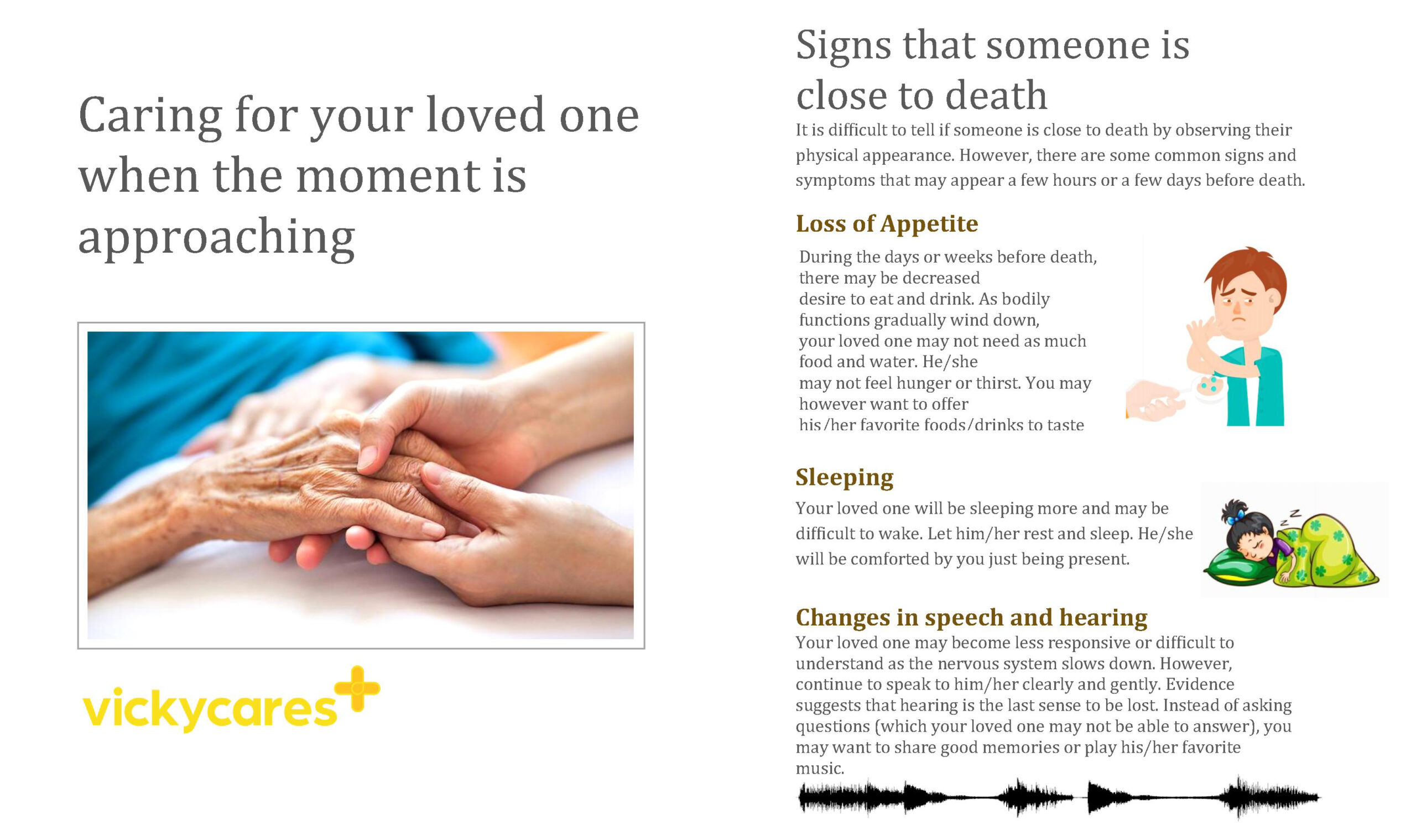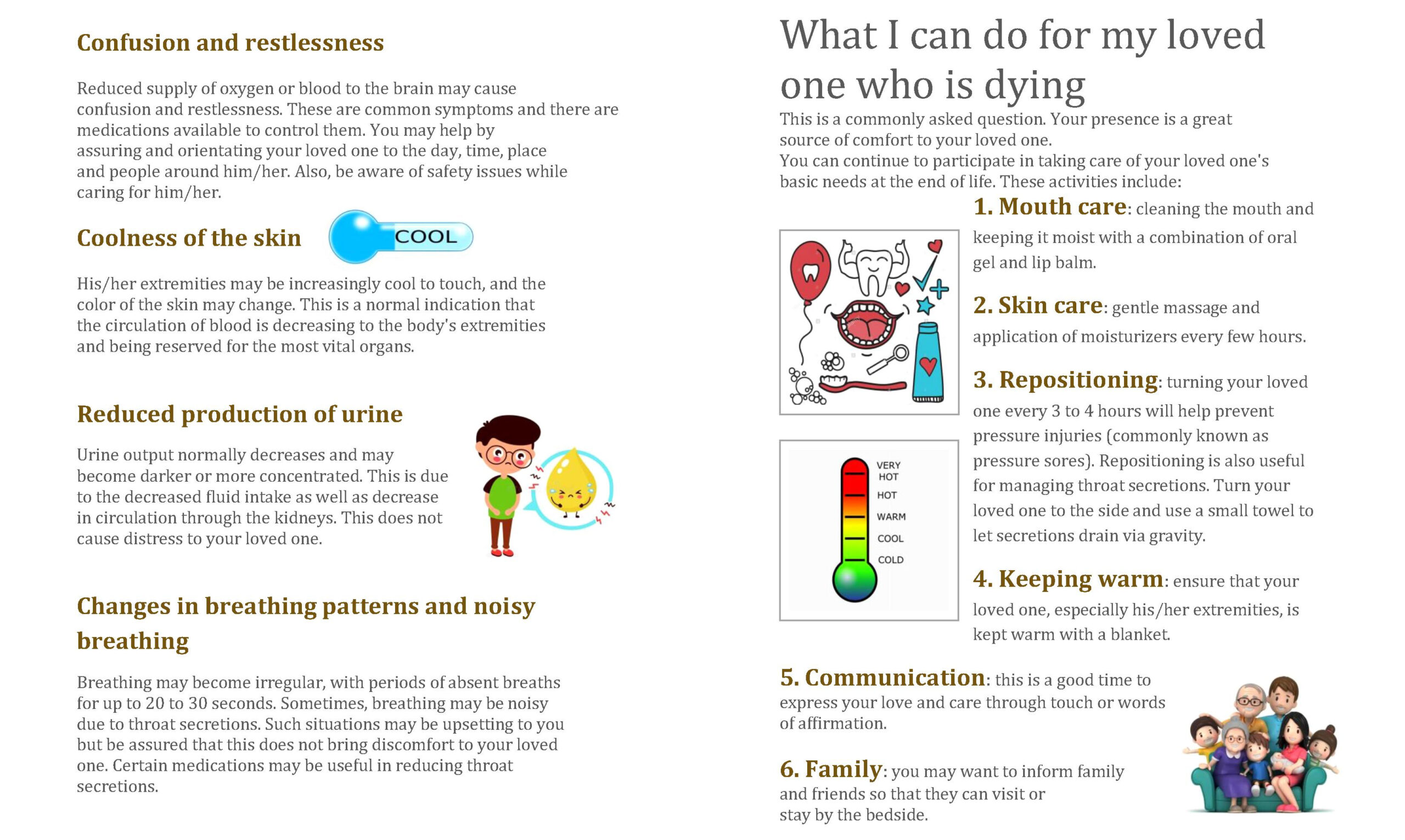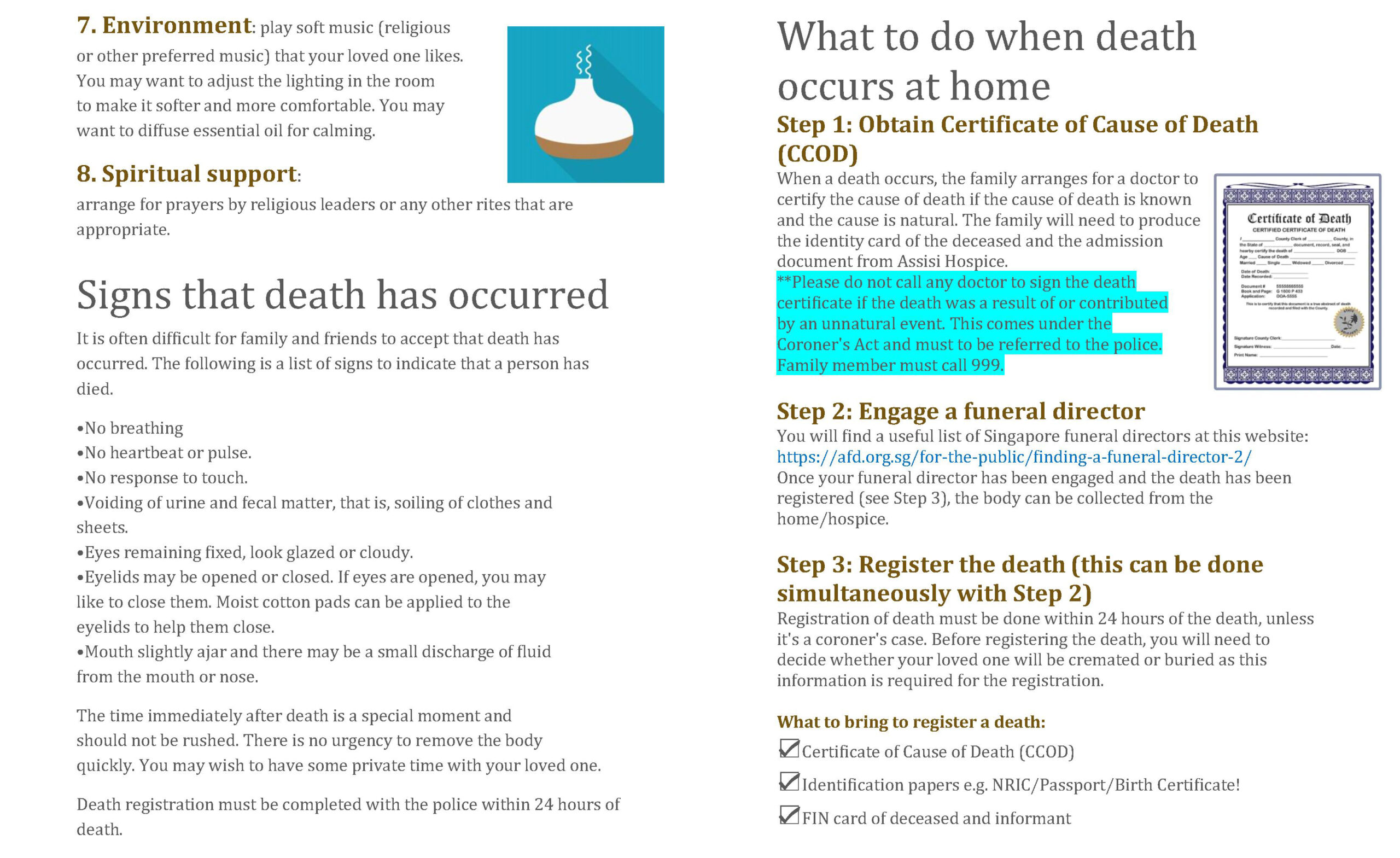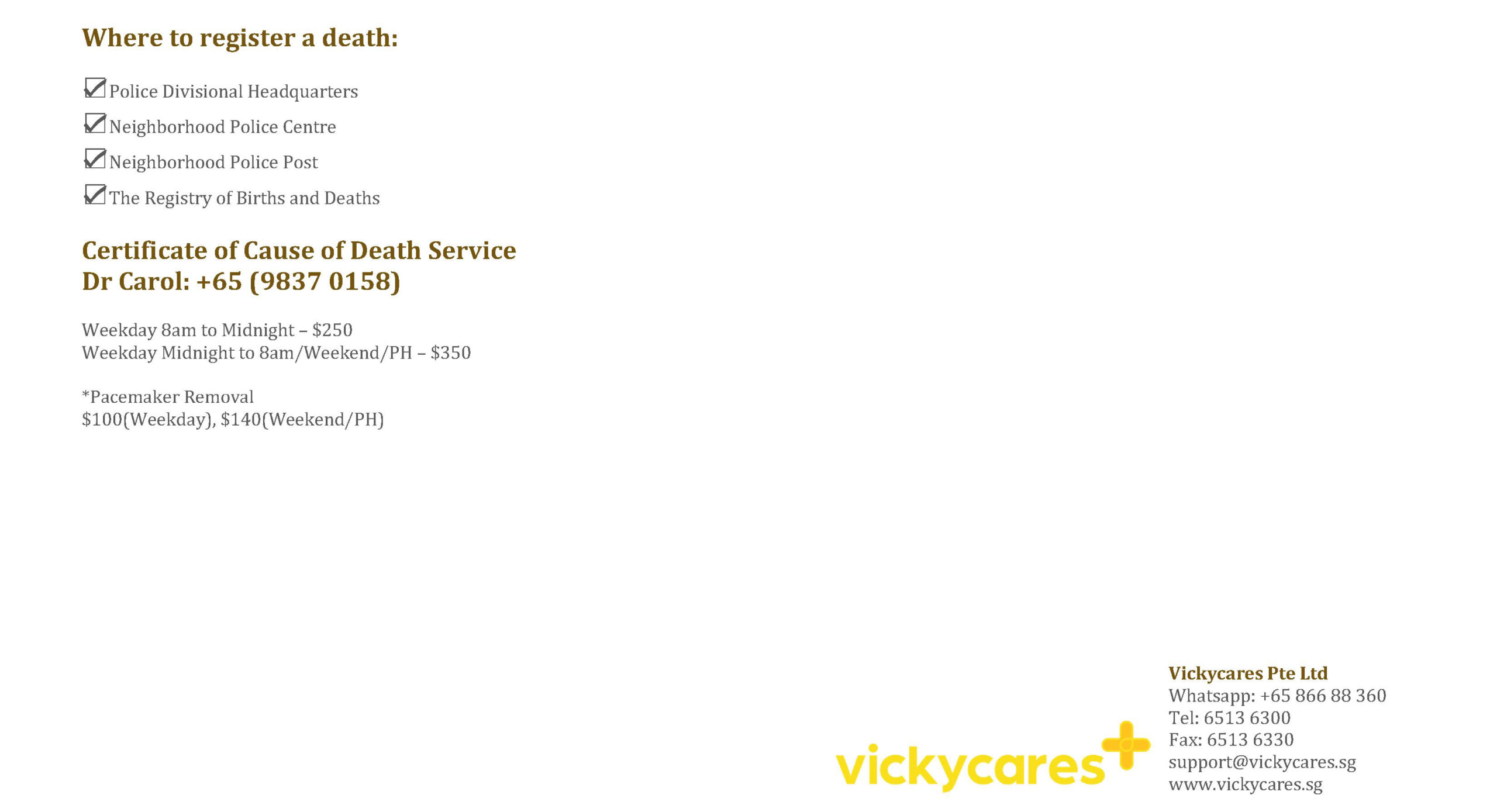Palliative Care
What is Palliative Care?
Palliative care is an approach which focuses on improving quality of life for patient suffering from life-limiting illnesses by providing relief from physical, emotional and spiritual suffering.
Principles of Palliative Care
- Relief from symptoms that causes distress through early identification, assessment and treatment
- Affirm life and regards dying as a normal process.
- Not to hasten and postpone death
- Providing holistic care to the patient
- Render support to patient’s family and care-giver during patient’s illness and after death
- Understand that every individual is different and treatment plan must be individualised
Principles of Management and Drug Prescription in Palliative Care
With disease progression, patient’s liver and renal functions tend to deteriorate. This will affect drug metabolism and hence there is a need to titrate drug dosages accordingly.
In terminal stage, patients might not be able to take medications orally and thus essential medications may have to be given through another route. Subcutaneous route is preferred as it is deemed less invasive and easier to administer it.
Usage of off-label drugs are not uncommon in palliative care. These drugs are used because of their positive effects on symptom control.
Final hours refer to hours or short days before death. The main aim is to keep patients as comfortable as possible. Frequent checking of blood pressure and oxygen saturation is not necessary as it is expected to fall below the normal range.
What happens during the final hours?
Not eating/drinking
Your loved ones do not need much calories at this stage. It may worsen suffering by causing increased breathlessness and secretion. However, you can still offer the food/ drink that they desired in small amount if they are not drowsy.
Gurgling throat sounds
As dying patients become increasingly unconscious, they are unable to swallow or clear their oral secretion. This may be distressing to the family members but rest assured that it does not cause any discomfort. Turning/raising head of bed does help.
-Sleeping excessively
This is normal as there are chemical changes in the body and the brain. However, family members can hold onto their loved one’s hands and continue to talk to them. Hearing is the last sense to be lost.
Changes in breathing pattern
In the final hours, patient’s breathing pattern may be irregular and may even stop for a few seconds. Fret not, usually this does not cause distress to the patient. Position your loved ones on his or her side can help to drain the secretion out. Having cool air blown to the face using a fan does help to relieve breathlessness by stimulating the trigeminal nerve.
Mouth Care
Can use moist cotton-tipped applicators to clean your loved one’s teeth. Can keep the lips and oral cavity moist with water-based moisturiser.
Urinary and bowel care
You loved ones will not be able to control his or her bowel and urine at the last stage. You can help keep the bed and clothes clean by changing them. Using barrier cream if you put on diaper for them to prevent skin breakdown.
Skin and eye care
Your loved ones may not be able to close their eyes fully. You may apply eye drops to prevent eye dryness. Apply skin lotions to keep skin moisturised.
Limb coolness
Limbs may become cool to touch as bloods flows to the vital organs. You can help to keep your loved ones comfortable by covering them with blankets.




